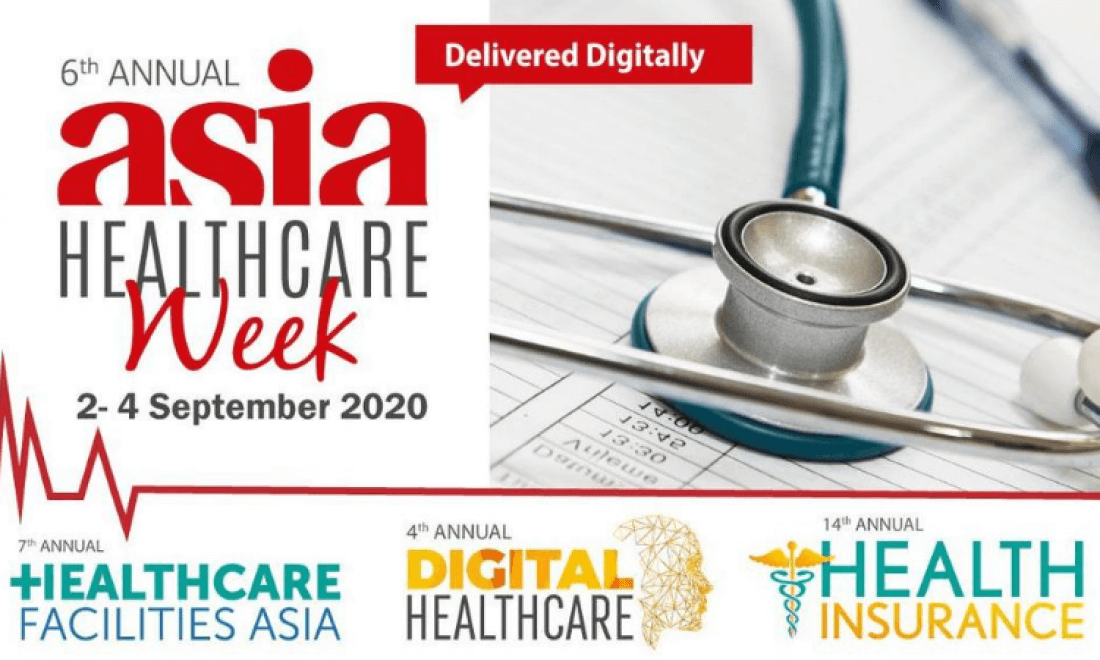
Photo Credit: Freepik
Informa Connect Singapore recently conducted its first live webinar to complement the main conference offering. Hosted as part of the 6th Asia Healthcare Week, the webinar titled “COVID-19 and the NHS UK Response” was presented by expert speaker Dr. Sam Shah, Global Digital Health Advisor and Consultant with UK’s National Health System (NHS). The session saw a turnout of over 120+ attendees, with majority coming from Southeast Asia.
In this session, Dr. Shah discusses how the COVID-19 pandemic is reshaping healthcare with technology, specifically the response of UK’s NHS. Key questions addressed includes applications proving to be useful, what is likely to see more investments, and how the digital landscape for healthcare tech will change. Some key points covered are as follow and you can find the full webinar recording here.
UK Approach
With 86% of UK households connected online, digital health development holds great potential especially in public messaging as well as the adoption of telehealth. NHS have been working closely with mainstream media channels to validate the countless messages that we see out there about COVID-19.
Dr. Shah expounded further on citizen-facing applications used in the UK which can help to alleviate the recurring issue of overburden in the public healthcare facilities. You can get triage, book appointments, access clinical records and order prescriptions- all without stepping onto the hospital’s grounds.
Healthcare tech that are specific to COVID-19 in the development includes contact tracing, home testing apps which allow people to interact and share their testing results, access information, and connect to other physicians in the system.
Healthcare Workforce Facing Initiatives
Not only on the customer service front, Dr. Shah shared about the digital initiatives rolled out within the healthcare workforce to improve their understanding of the environment (i.e. protective equipment and infection control). The crisis has thrusted workers into tasks that they did not necessarily undertake before COVID-19.
He is also seeing more partnerships between tech and healthcare emerged from the crisis. Some tech providers putting forward their tech offerings for free to the healthcare industry during this period. This has macro-level implications on policy-making to plan resources (i.e. PPE) more efficiently across hospitals in the country.
Telehealth
Prior to COVID-19, about 1/5 of the population were already using digital channels to contact their physicians. The options for telehealth platforms are still growing and incredibly diverse from all over the world.
We understand of telehealth solutions primarily being adopted by General Practitioners (GPs) and family physicians, but an interesting observation is that hospitals are coming onboard the bandwagon as well and this is triggered by government investments in digital health.
He cited some examples of telehealth platforms increasing their footprints in the UK, and that this is of course fueled by an existing demand among consumers. The question is whether the growth will be sustainable even after the crisis, especially after travel restrictions and social distancing have been lifted.
Challenges
Optimizing the patient experience should be the priority when it comes to adoption of digital health solutions. Especially in public health systems, there are concerns about how data may be shared and used especially through the NHS tracing app. Violations on data security and privacy will seek to undermine citizens’ trust in public services.
Dr. Shah further explained system-wide barriers which “make or break” the sustainability of digital health solutions. One of which is the culture which entails education and training in the wider workforce to change mindsets and the way things have always been done. This includes using digital tech to improve the ability for people to make decisions and feel empowered.
Another one is legacy systems. COVID-19 has induced pressure on NHS to integrate innovations into the many legacy systems across the UK. Will the legacy systems change at the pace they need to after the crisis? Interoperability has always been a problem for the UK and the rest of the world.
What’s the future?
“The democratization of healthcare means we need to have a very different system, tools that help to support the individual.”
Dr. Shah summarized some key trends we should expect moving forward.
First, the increase of citizen-facing digital health solutions. Second, the increase in digital penetration- not just in digital health but the uptake of digital in other industries like banking and retail which has compounding effects on each other. And thirdly, expanding online access to other healthcare services beyond physician-to-patient which includes services like physiotherapy and mental health.
Dr. Shah ended his presentation with a hopeful note about eventually reaching the vision of “hospitals without beds/patients”, and something to be considered by hospital planners and designers.




